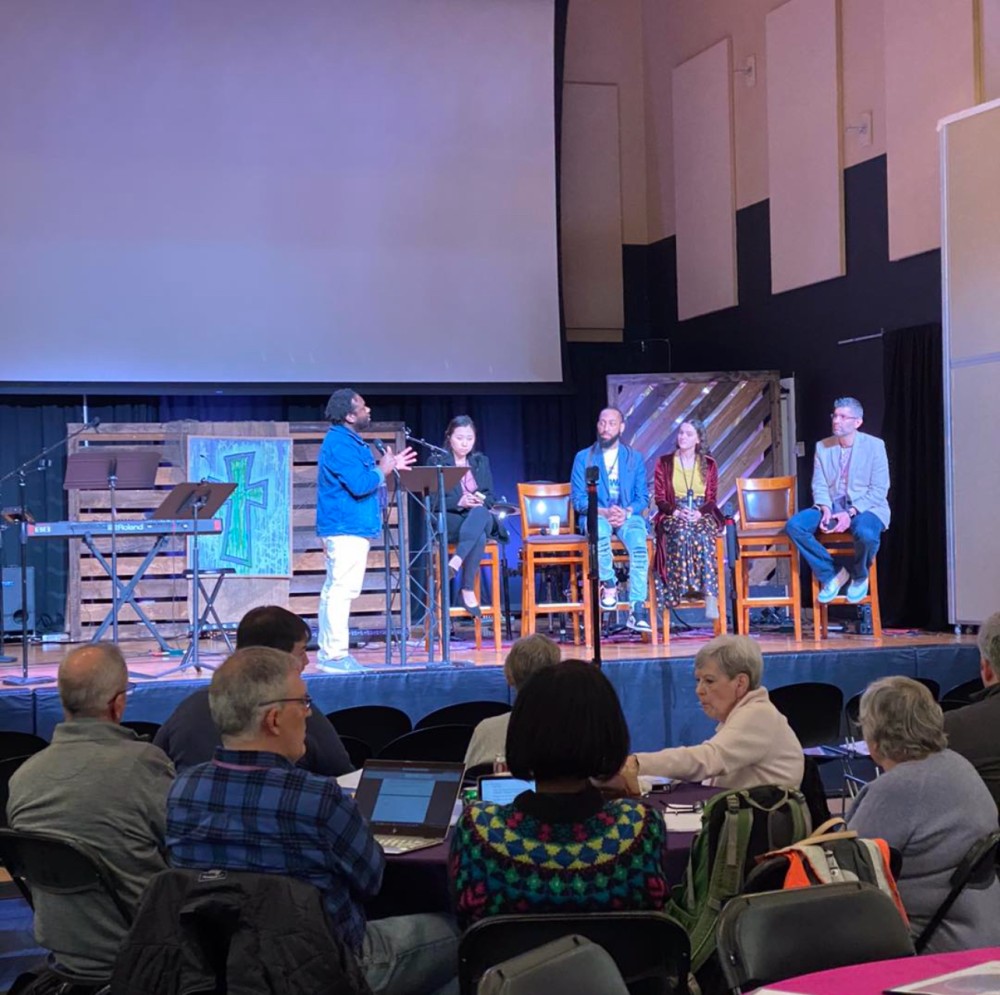UMC alternative worship group hosts first national gathering

A panel at the first national gathering of Fresh Expressions, a United Methodist group exploring alternative forms of worship. (Instagram)
Nowadays a brew pub or a website may be a more effective place to seek God than a church.
“(Fresh Expressions) was born out of this realization that people are not coming to the church,” said Michael Adam Beck, who leads Fresh Expressions, a United Methodist program that explores alternatives to traditional worship, and also teaches the concept at United Theological Seminary.
“In (Methodism founder John) Wesley’s day, people were not coming to the church. He writes that ‘they will never step foot in a church, and so we have to go out and we have to be church with people where they are.’”




